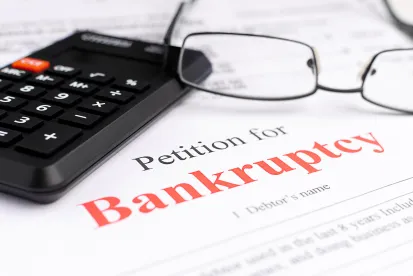Two controversial mechanisms are available in many circuits to assist parties in a chapter 11 case to reach a global resolution and obtain plan confirmation: non-consensual third-party releases and preliminary stays against third-party litigation. On July 28, 2021, the House Committee on the Judiciary Subcommittee on Antitrust, Commercial and Administrative Law announced proposed legislation, the Nondebtor Release Prohibition Act of 2021 (“NRPA”), which would largely prohibit the use of nonconsensual third-party releases. Testimony given before the House Committee discussed how plans of reorganization proposed in Purdue Pharma, USA Gymnastics, Boy Scouts of America, and various Christian diocese bankruptcy cases contain such releases and how these releases could negatively impact tort claimants who are victims of egregious acts.
The NRPA would: (i) prohibit chapter 11 plans from containing nonconsensual third-party releases; (ii) limit the duration of injunctions precluding the initiation or continuation of lawsuits against non-debtors to 90 days after the petition date; and (iii) permit the dismissal of a case commenced by a debtor that was formed through a divisional merger (i.e., separation of a company’s liabilities and assets) within 10 years of the petition date. Although the intent of the NRPA to protect tort claimants is understandable, the means by which the NRPA seeks to effectuate this end diminishes the equitable powers that have served bankruptcy courts, debtors, and their stakeholders well in many complex and difficult cases.
Addition of Section 113 – Third-Party Releases and Section 105(a) Injunctions
In certain circuits, non-consensual third-party releases may be included in a chapter 11 plan to release affiliated non-debtor parties from prepetition liability by the debtors and unaffiliated third-parties. These third-party releases can be critical to a debtor’s reorganization because they constitute consideration for the released party making a substantial economic contribution for the benefit of creditors. The NRPA proposes to add a new section 113 to the Bankruptcy Code, pursuant to which the court will not be permitted to discharge, release, terminate or modify a third-party’s claim or cause of action against a non-debtor, whether pursuant to a plan or otherwise.
A debtor may also seek an injunction, principally under section 105(a) of the Bankruptcy Code, to stay lawsuits against non-debtors, for instance lawsuits brought against the debtor’s directors and officers. The NRPA limits a debtor’s ability to enjoin such lawsuits against non-debtors to 90 days in duration. Any extension beyond 90 days is conditioned upon the “express consent” of the third‑party being enjoined. Proponents of the NRPA contend that such injunctions greatly interfere with the rights of third-parties, while debtors argue that the protected non-debtors are essential to the debtor’s ability to reorganize and that the litigation claims would interfere with the debtor’s reorganization efforts.
Amendment to Section 1112 – Divisional Merger Entities
The NRPA also proposes to amend section 1112 of the Bankruptcy Code to address divisional mergers, which involves one entity dividing into multiple entities and allocating its assets, liabilities, and obligations among the new entities. Under the NRPA, upon a request of a party in interest, proposed section 1112(f) would require the court to dismiss a chapter 11 case if the debtor or a predecessor of the debtor was formed as part of a divisional merger or equivalent transaction within the past 10 years before the bankruptcy was filed.
Analysis
Non-consensual third-party releases and the section 105(a) stay of non-debtor lawsuits are critical tools that have allowed debtors to resolve complex cases and maximize value for their stakeholders by avoiding liquidation and costly and drawn-out litigation. Critically, the use of these releases and injunctions is not ubiquitous and those courts that allow them appropriately have set a high bar for approval.
Circuit courts are split regarding whether a non-consensual third-party release is permissible in a chapter 11 plan. Although the Second, Third, Fourth, Sixth, Seventh, and Eleventh Circuits permit such releases, the Fifth, Ninth, and Tenth Circuits prohibit these releases. In those circuits that permit these releases, a debtor must meet a high burden and the courts will consider: (i) the identity of interests between the debtor and the non-debtor (e.g., indemnification obligation owed by the debtor); (ii) if the non-debtor has contributed substantial assets in the bankruptcy case; (iii) if the third-party release is necessary for the reorganization; (iv) if creditors have overwhelming accepted the debtor’s plan; and (v) if the bankruptcy court’s record of factual findings support the third-party release. Debtors may be able to satisfy these requirements if the non-debtor’s contribution was a key component to the reorganization and supported by the vast majority of creditors.
Furthermore, although limiting the time in which a debtor can enjoin lawsuits against non-debtors may seem equitable, such limits may interfere with a debtor’s ability to successfully reorganize, especially in complex cases, while non-debtors direct their attention and resources to their own litigation.
The NRPA would eliminate a bankruptcy court’s discretion to grant non-consensual third-party releases and enjoin lawsuits against certain non-debtors for longer than 90 days. The NRPA presumes that litigation against non-debtors should be protected at all costs and not be restricted from being commenced or continued during the debtor’s bankruptcy case. Yet, the NRPA ignores the possibility that in some cases a respite from litigation and an eventual third-party release can be in the interest of creditors and could even have overwhelming creditor support. While the NRPA may be an expected political response in light of recent high profile cases, and perhaps reform is needed, the NRPA may ultimately harm tort claimants and impair recoveries to creditors generally. The NRPA could discourage settlement options between holdout creditors, the debtor, and non-debtors who otherwise would contribute substantial resources, which would result in reducing funds for creditor recoveries and likely forcing liquidations of companies that might have otherwise reorganized. It seems that bankruptcy courts and judges are best suited to determine whether lawsuits against non-debtors should be enjoined while the parties negotiate and if a third-party release in a debtor’s plan is appropriate.
Finally, prohibiting a debtor from filing for bankruptcy that was formed as a product of a divisional merger, without consideration of any other relevant factors such as the existence of fraudulent transfers or harm to third-parties, likely will deny companies in need from seeking legitimate relief under the Bankruptcy Code. In fact, companies may execute these transactions for a variety of reasons, including to avoid certain transfer restrictions in contracts or to provide a degree of successor liability protection under state law. Instead of relying on this broad prohibition, federal and state fraudulent transfer statutes are available to address scenarios where divisional mergers are abusive. This appears to be a solution searching for a problem.
We will continue to monitor NRPA developments and will provide updates as the proposed legislation progresses through Congress.





 />i
/>i

